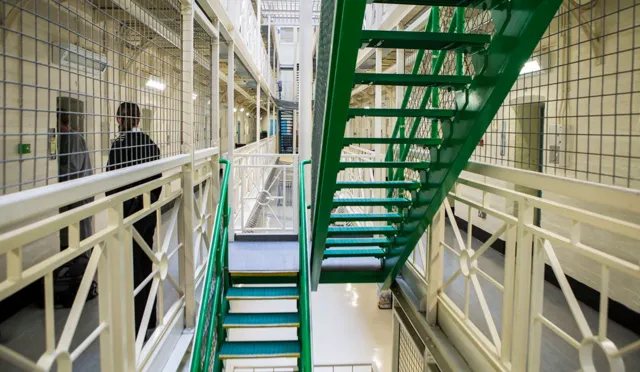
The prison population in England and Wales has dropped by 2,188 in a week following the mass early release of offenders to deal with overcrowding.
There were some 88,521 prisoners as of 6 September – a record high with only 1.2% capacity left in the system.
But as of Friday, the number had fallen to 86,333, according to new Ministry of Justice figures.
An early release scheme came into effect earlier this week.
The scheme was initially worked on by the previous Conservative government but implemented by Labour. Around 1,700 prisoners were released on 10 September.
Offenders who had served 40% of their sentence were eligible. They would otherwise have been released after serving 50%.
Prisoners who were in jail for serious violent offences with sentences of four years or more, as well as sex offenders, were not released.
Prime Minister Sir Keir Starmer told the BBC last week that he did not want to be in a position of releasing people who should be in prison, but said the situation was at “crisis point”.
“We have to release people early because otherwise we’ll have an absolute crisis in our prisons,” he said.
Some victims’ advocates and the probation union have expressed concern about the scheme.
Napo probation union said it feared the scheme was a “ticking time bomb that could put public safety at risk”.
The domestic abuse commissioner has also called for prisoners to be excluded if they have been sentenced to any crime connected to domestic abuse.
Crimes such as stalking, controlling or coercive behaviours and breaches of restraining orders have been excluded, but others such as threats to kill have not been.
The prime minister said last week that risk assessments would ensure high-risk prisoners would not be released.
The prison population has been climbing steadily every week since 9 August, when it stood at 87,496.
The number of people in prison climbed after violent disorder broke out across England and Northern Ireland in late July and early August.
The disorder was fuelled by misinformation spread about the suspect in the fatal stabbing of three girls in Southport on 29 July and anti-immigration sentiment.
As of 6 September, police had arrested 1,380 people and prosecutors had brought 863 charges in connection with the disorder, according to the National Police Chiefs’ Council.
 Weekly Bangla Mirror | Bangla Mirror, Bangladeshi news in UK, bangla mirror news
Weekly Bangla Mirror | Bangla Mirror, Bangladeshi news in UK, bangla mirror news







